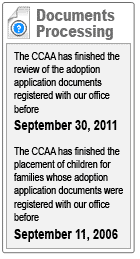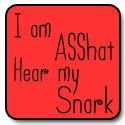So in a conversation with Rhonda today over the Internet, she asked me to record more in the Little Maple Project. And when asked what to record, she said, "Oh, you know, the usual - mother, father, aunt, uncle..." to which I replied, "No, really, what do you want me to record?"
Let me explain something to you here - and I'm afraid it will take the entire post to do it, as it's very complicated. Family relationships are highly structured and the words are all different, depending on age and whether or not you're related by marriage, as well as whether or not you're brothers or simply siblings. Like I said, quite complicated.
Let's take a very simple case of immediate family. If you are the middle of five siblings, and you have one older sister and one older brother as well as one younger sister and one younger brother, you have different names to call all of them.
1. Your older brother is "Guh-guh"
2. Your older sister is "Jie-jie"
3. Your younger brother is "Di-di"
4. Your younger sister is "Mei-mei"
(I'll record all of these later.)
Okay, case 2: You have four older brothers. So you start numbering them off. For reference, the numbers are "Yi, Ar, San, Si." (Bear with me - my pinyin sucks, as I learned to write pronunciations using the Zhuyin Fuhao method.)
1. Your oldest brother becomes "Big older brother": "Da-guh" (not one-brother)
2. Your second becomes "Second older brother": "Er-guh"
3. Your third becomes "Third older brother": "San-guh"
4. Your fourth can become either "Fourth older brother" or "Little older brother": "Si-guh" or "Xiao-guh"
Say you're the middle of a very large family. You could have multiple older brothers, multiple older sisters, multiple younger siblings of both sexes. You'll just start counting them off in that manner.
Okay, so we're done with those of your generation. Of course you only have one set of parents, so they become "Mama," "Baba." For these two words and all your siblings (what we call "Xiong-Di-Jie-Mei" (Older brother - younger brother - older sister - younger sister), we have multiple pronunciations for the words, depending on whether you're speaking colloquially (talking amongst yourselves, teaching little kids) or whether you're speaking formally (to a stranger, for instance).
All right, let's move to grandparents, now that we're outside of the immediate family. You now have two sets of grandparents. But, because the Chinese want to be very specific, they don't say "grandpa," they use very specific words:
Paternal grandparents:
1. Grandpa: "Yehyeh."
2. Grandma: "Nainai."
Maternal grandparents:
1. Grandpa: "Gong-gong" (or "Wai-Gong", either will work)
2. Grandma: "Poh-poh" (or "Wai-Poh", either will work)
[Edited: For some reason I put in Ah-Gong, but I was thinking that it sounded wrong. It's supposed to be Wai-Poh, Wai-Gong - 10 Sep 2006 spitgirl]
That's not bad so far, right?
Okay, so let's start getting into the mother's siblings and their husbands/wives.
1. Any brother of your mother becomes a "Jiou jiou." My mother has 3 brothers, so we named them "Da jiou jiou," "Er jiou jiou," and "Xiao jiou jiou."
2. Their wives become "Jiou Ma." (Ma being the word for mother.) So: "Da jiou ma," "Er jiou ma," "Xiao jiou ma."
3. Any sister of your mother becomes an "Yi-Ma." My mother also has 3 sisters, so they're "Da yi ma," "Er yi ma," and because they're perverse, "San yi ma." (Third auntie.) You can, if you'd like, call them the generic word for auntie ("Ah-yi"). More about that later.
4. Their husbands become "Yi-Fu." So: "Da yi fu," "Er yi fu," "San yi fu."
Still with me? That's the easy side of the family. Now for the father's side of the family.
1. Any sister of your father becomes a "Gugu" or a "Gu-ma" (again, that word for mother).
2. Unsurprisingly, their husbands become "Gu-fu."
3. Any OLDER brother of your father becomes a "Boh-boh."
4. Their wives become "Boh-Mu." (Mu is the word for "woman" and is a bit more formal.)
5. Any YOUNGER brother of your father becomes "Su-su."
6. Their wives become "Sao-sao."
Okay, still with me? I wish I could draw a figure of it. Maybe one of these days...
So, now onto cousins. Let's start with the mother's side, because they're the easiest.
1. Any cousin on your mother's side is the word for "brother/sister," depending on their relative age to you, prefixed with the single word: "Biao." So... Biao-Jie, Biao-Mei, Biao-Gu, Biao-Di.
Father's side:
1. Any child of your father's sister follows the rule for the mother's side.
2. Any child of your father's brother is prefixed with "Tang."
Phew! So we've made it through the first few generations.
Let's go on...
Families are so important in Chinese culture that your parents' social circle automatically become your "extended" family. Family friends are called "Susu" and "Bohboh" for men, depending on their relative age to your parents. Aunties are called "Ah-yi" if they are considered a part of your parents' generation.
If, however, your parents call them "ah-yi" and "Susu/Bohboh," you then call them "Yehyeh/Nainai." These titles are normally prefixed by either their last name OR, if you're particularly close to them or they're particularly Americanized (or Canadianized, I guess), their first name. (So my kids would probably call Rhonda: "Rhonda Ah-yi.")
I'll get around to recording all of that sometime this weekend, but not immediately, as I have things to prepare for a lecture tomorrow morning.
Saturday, September 09, 2006
Subscribe to:
Post Comments (Atom)




















No comments:
Post a Comment